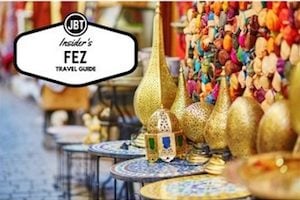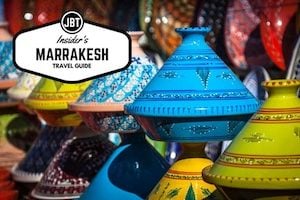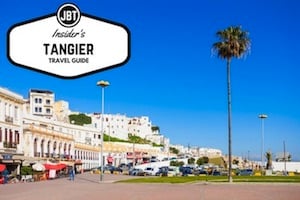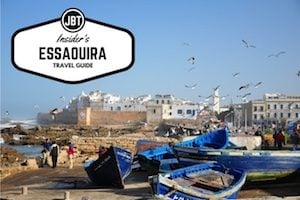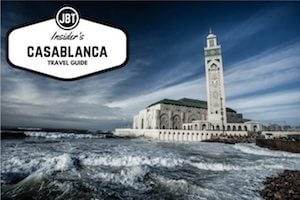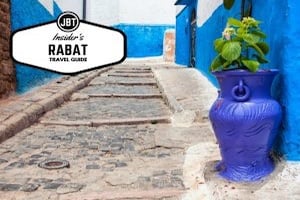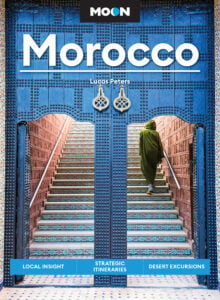
Can you travel in luxury in Morocco without leaving a footprint? It’s the question on every conscious traveler’s mind, and if it’s not, it probably should be. Whether we’re aware or not, the way we travel has a huge impact on the places and communities we visit. Depending on the choices we make, we have the power to contribute positively or negatively to these communities.
In developing countries like Morocco, having this awareness is even more instrumental. The luxuries that most Westerners take for granted can put a great deal of pressure on communities where clean water is precious and electricity is scarce. Not to mention, the wealth inequality and the extremely different cultural norms between locals and travelers can be a recipe for corruption.
Tourism in Morocco has boomed in recent years and today it contributes to 11% of the country’s overall GDP. With inexpensive direct flights from London and many European cities, Morocco has become an extremely popular vacation destination even for a long weekend. Consequently the beach towns are packed with tourists in the summer months, cities are filled with unofficial guides and shopkeepers soliciting business from foreigners, and there are big plans to develop much of Morocco’s coastline with big resorts. Some may argue that this booming tourism is corrupting an otherwise beautiful, rugged, and extremely hospitable country.

Though when done right, tourism can tremendously improve the standard of living of a country. It can dramatically improve infrastructure and offer locals proper septic systems, clean water, and other “luxuries” that lead to greater health and happiness. It can also bring better education and job opportunities for locals. Not to mention, interacting with people from other parts of the world expands cultural tolerance for tourists and locals alike.
Let’s take a look at luxury travel in Morocco and how you as a traveler can allow the most sustainable, comfortable, and authentic experience possible.
What is Luxury Travel in Morocco?
Somehow over the years, luxury travel has grown synonymous with all-inclusive resorts. In many parts of the world, this is indeed the case. Though in Morocco, most of the luxury hotels are actually refurbished traditional homes. Known as riads, these accommodations are centered around an interior courtyard with grand terraces and original architecture. Thanks to the small size, service is attentive and you’ll always be welcomed with a pot of mint tea. In this case, luxury actually equals a more authentic, local experience.

Similarly, luxury tours in Morocco tend to have a strong cultural and environmental focus. Rather than big tour buses and luxury yachts, trips focus on culinary tasting tours, hikes to remote Berber villages, and camping in traditional tents in the middle of the desert without electricity. In Morocco luxury often means the ability to have unique off the beaten path experiences in an approachable way.
Does Luxury Mean a Greater Environmental Impact?
Tourism certainly puts an impact on the local environment. From plastic water bottles to excessive water usage in hotels, tourists often require significantly more resources than locals. In this sense, luxury travel can be particularly detrimental for the environment. Large scale resorts can deplete local resources, uproot local inhabitants, create even greater wealth inequalities, and visually ruin the landscape.

However, luxury companies who operate sustainably can actually make a smaller environmental imprint than low cost companies. The higher price tag can support some of the more expensive, though more sustainable, business practices. For instance, many of the high end riads in Marrakech are entirely restored, keeping original fixtures and finishes, and maintaining the traditional architecture of the medina. This means less waste and less loss of local culture. They also may use all natural bath products sourced from women’s collectives and hire local citizens to their staff.
Tour companies working with mass tourism try to keep costs as low as possible, and often focus more on the bottom line than on sustainability. Shuttling big groups of tourists to and from the desert every few days certainly makes a larger impact on the environment than one small group trekking and camping for several days. Higher end tours also have the budget to give back to different social organizations, work with local collectives, and provide quality training for their employees.
Tips for Responsible Travel in Morocco
Whether you decide to go luxury or not, here are some basic guidelines to follow when traveling in Morocco, to keep your impact as positive as possible.
Reusable water bottle and filter
A simple way that you can help the environment during your stay in Morocco, is to bring your own water bottle and filtration system. Unfortunately Morocco has an extremely poor, at times nonexistent, waste management system, and lacks proper recycling facilities in many areas. Imagine how many plastic bottles every single day are burned in garbage piles, thrown into the ocean, or buried in landfills across the country. While generally you can drink local water, some towns have extremely clean mountain water or good filtration systems that make the water potable, because of the high calcium content and risk of contamination in some of the old cities of Morocco, it isn’t always possible. Be sure to ask if the water is potable and when in doubt, don’t drink it. This is why it’s great to bring your own water filter. Fill up with tap water run through the filter. Your water will be safe to drink and you won’t waste more plastic.

Don’t take people’s photos without asking
In general, this is a good practice to have anywhere, but especially in Morocco people can find it very offensive. Respect people’s privacy, and if you want to take a photo, ask. In cities like Marrakech there’s a good chance they will ask for payment in return, however in less touristic places that shouldn’t be the case.
Never buy from children or give gifts
The kids may be adorable and you may have good intentions, but buying from children anywhere in the world is usually a bad idea. It reinforces a pattern of selling to tourists instead of going to school and having the freedom to just be a kid. Think of a better way you can support kids that you meet, perhaps by teaching them a song, a game, or some new phrases in English.
Respect Local Customs
It’s important to remember that you are the guest when you’re traveling in Morocco, and to respect the local traditions. Morocco is an Islamic country and while very tolerant, it’s far more traditional than many Westerners may be used to. In Morocco people dress conservatively, even when it’s very hot outside. Men and women alike will blend in better with their shoulders and thighs covered, and loose clothing is always best. Alcohol is not commonly sold nor drunken, and if you decide to enjoy some alcoholic beverages, it’s best to do discreetly in your riad or on a nice restaurant terrace. During Ramadan, the holy month for Muslims, it’s particularly important to be aware of local customs. Nearly every local fasts during the day, from the break of dawn until sunset. The fast not only includes food, but a fast from water and cigarettes as well. While as a tourist you’re not expected to fast, do try to eat and drink more discreetly and not smoke cigarettes in the street.
Respect the Resources
Reduce your usage of water, protect the delicate septic systems by not flushing toilet paper, and turn off your lights whenever you’re not in the room. Remember that resources are precious and do your best to conserve them so that you don’t deplete the local supply.
Adjust Your Standards
Remember, Morocco is a different country, with a different history, a different culture, and a different lifestyle. Things can move more slowly and may demand more of your patience. Take a cue from the locals and move at their pace, you’ll enjoy yourself much more and allow Morocco to stay true to its nature.

Support Local and Sustainable Businesses
One of the most impactful ways to affect not only the present environment while traveling, but the future environment, is by supporting sustainable businesses. In doing so you set the standard. How you spend your dollar as a tourist largely shapes the direction that tourist moves in, so create and support the demand for sustainability.
If sustainable travel is important to you, please contact us today. Our goal is to always provide guests with an excellent, insider’s experience while supporting local causes, initiatives, and associations throughout the country. We can help you plan an unforgettable experience in Morocco while respecting local resources.
About the Author:
Camille Willemain is a full time travel blogger, nomad, and certified yoga teacher. She first fell in love with Morocco from the stories told by her sister’s brother who grew up in Kenitra. A few years ago she created her own stories, traveling from Tangier all the way down the coast and across the Atlas Mountains into the Sahara Desert. Recently she spent a month in Morocco, mostly chilling out in the surf town Taghazout. Read more about her adventures in Morocco on her blog ThisAmericanGirl.com

